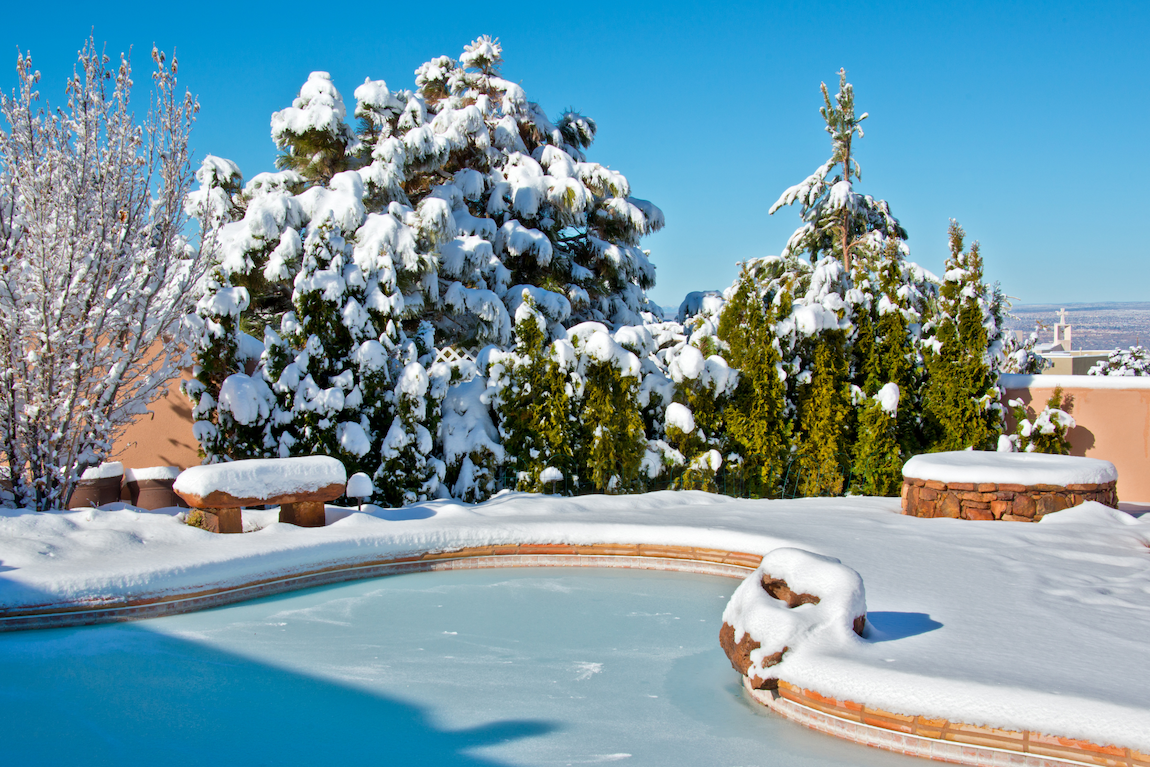
How to Winterize Your Pool: A Homeowner’s Guide to Protecting Your Investment
January 20, 2025As the days grow shorter and temperatures begin to drop, it’s time to start thinking about winterizing your pool. Properly closing your pool for the winter not only protects your investment but also ensures a smooth opening when warmer weather returns. At Care Free Pools, we’re here to guide you through the winterization process, making it easy and effective.
Why Winterize Your Pool?
Winterizing your pool is essential for several reasons:
- Prevent Damage: Freezing temperatures can cause water to expand, leading to cracks in your pool’s surface, plumbing, and equipment.
- Maintain Water Quality: Proper winterization helps prevent algae growth and keeps your pool water cleaner.
- Save Time and Money: A well-winterized pool reduces the amount of work needed when it’s time to reopen in the spring.
Step-by-Step Guide to Winterizing Your Pool
1. Clean the Pool
Start by thoroughly cleaning your pool. Remove any leaves, debris, and dirt from the bottom, and brush the walls and tiles. Vacuum the pool to ensure it’s spotless, as leftover debris can lead to algae growth over the winter. This step is essential in all of the other protocols being effective, so make sure to do a thorough job.
2. Balance the Water Chemistry
Before closing down the pool, balance the water chemistry. Test the pH, alkalinity, and calcium hardness levels. Ideally, the pH level should be between 7.2 and 7.6, alkalinity should be 80-120 ppm, and calcium hardness should be 200-400 ppm. Properly balanced water prevents corrosion and scaling.
3. Lower the Water Level
Next, lower the water level in your pool. Depending on the manufacturer and type of pool you have, the specific water levels for winterization recommended will vary. Make sure to check with your trusted Care Free Pools professional as this step is crucial to prevent damage from freezing water.
4. Drain and Store Equipment
Remove and drain all pool equipment, including pumps, filters, and heaters. Store these items in a dry, sheltered area to prevent any freezing or damage. If you have a pool heater, ensure it is winterized according to the manufacturer’s instructions.
5. Add Winter Chemicals
Add winterizing chemicals to your pool water. This typically includes a winter algaecide, a chlorine shock, and a stain and scale inhibitor. Follow the product instructions carefully to ensure optimal results.
6. Regularly Check Your Levels
By regularly checking water and chemical levels throughout the winter, you can ensure the best results come Spring and summer. Maintenance in the winter should be relatively low, but you never want to neglect your pool completely.
Additional Tips for Winter Pool Care
- Check for Leaks: Inspect your pool structure for any signs of leaks before winterizing. Addressing these issues now can save you from costly repairs later.
- Consider a Professional Service: If you’re unsure about any part of the winterization process, don’t hesitate to contact a professional pool service. At Care Free Pools, we’re here to help protect your investment and make sure your pool stays in top condition all year round.
When is the Best Time of Year to Winterize a Pool?
You should winterize your pool before freezing temperatures arrive, typically in late fall. It’s best to do this when nighttime temperatures consistently drop below 50°F (10°C). Every area is different, but getting ahead of the dropping temperatures can make a major difference in the process, not only for your pool and equipment, but for your hands as well! Reaching into icy cold water is never fun.
Can I Leave My Pool Water in During the Winter?
While some homeowners choose to leave water in the pool, it’s essential to lower it below skimmers or to the level recommended by the manufacturer to prevent damage from freezing. Leaving the water in can save time and money once the warmer months return, but the proper water level makes all the difference in effective winterization.
Should I Cover My Pool During Winter?
Often it is not recommended to cover your pool during the winter as it can create more problems than good. In some cases using a cover can even void the warranty you have in place, so check with your qualified professional for best practices on using a pool cover for winterization.
Confidence in Colder Months
Winterizing your pool is an important step in protecting your investment and ensuring that it remains in great condition for years to come. By following this guide, you can confidently prepare your pool for the colder months ahead. If you have any questions or need assistance with winterizing your pool, don’t hesitate to reach out to us at Care Free Pools. We’re always here to help you keep your pool care-free!